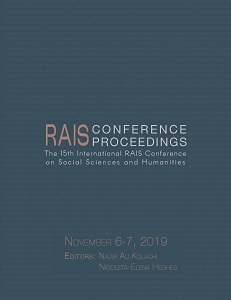Role of Indigenous Women in Securing Sustainable Livelihoods in Western Himalayan Region, India
Role of Indigenous Women in Securing Sustainable Livelihoods in Western Himalayan Region, India
Author(s): Jaimini Luharia, Haresh Sharma
Subject(s): Economic development, Ethnic Minorities Studies
Published by: Scientia Moralitas Research Institute
Keywords: Forest Conservation; Indigenous women; Sustainable Livelihoods, Sustainable Development; Poverty Alleviation; Western Himalayas;
Summary/Abstract: The ecology in the Western Himalayan region transforms with the change in altitude. The current study focuses on women of indigenous communities of Pangi Valley which is located in the state of Himachal Pradesh, India. The valley is bifurcated into three different areas – Saichu, Hudan Bhatori, and Sural Bhatori valleys, and the altitude of the valley ranges from 2,000 m to 6,000 m above sea level. The Pangi valley is inhabited by ‘Pangwals’ and ‘Bhots’ tribes of the Himalayas who speak their local tribal language called’ Pangwali’. Due to the difficult geographical location, the daily lives of these people are constantly challenged and they are most of the time-deprived of benefits targeted through government programs. However, the indigenous communities earn their livelihood through livestock and forest-based produce while some of them migrate to nearby places for better work. The current study involves snowball sampling methodology for data collection along with in-depth interviews of women members of Self-Help Groups and women farmers. The findings reveal that the lives of these indigenous communities largely depend on forest-based products. So, it creates all the more significance of enhancing, maintaining and consuming natural resources sustainably. Under such circumstances, the women of the community play a significant role of guardians in the conservation and protection of the forests. They are into cultivation of products like ‘Hazelnut’, ‘Gucchi’ rare quality mushroom, medicinal plants exclusively found in the region thereby promoting long term sustainable conservation of agro-biodiversity of the Western Himalayan region (Sharma, 2019).
Book: Proceedings of the 15th International RAIS Conference on Social Sciences and Humanities
- Page Range: 77-82
- Page Count: 6
- Publication Year: 2019
- Language: English
- Content File-PDF

